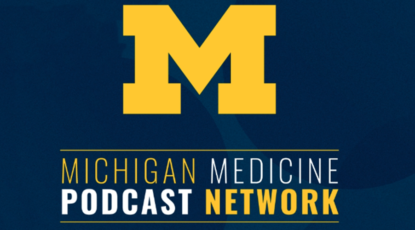The order that launched the Revolutionary War, 250 years later

The ‘shot heard ’round the world’ can be traced to one manuscript containing the orders for the Concord Expedition on April 18, 1775. The quill-to-paper draft orders, penned by British Army officer Thomas Gage, sparked the Battle at Lexington and Concord the following day. U-M’s Clements Library holds the document.
-
The Doors' disaster at Michigan
Jim Morrison bombs at the homecoming dance –- and changes rock history.
-
Update on the University's financial situation
University of Michigan Philip Hanlon describes the University budget, cost-cutting efforts, investments in the future and plans for growth.
-
U-M enrollment sets another all-time record
Enrollment on the University of Michigan Ann Arbor campus is at an all-time high in fall 2010 with 41,924 students. Help with tuition is also up: the general fund budget includes $126 million in centrally awarded financial aid, including a 10.6 percent increase in centrally awarded financial aid for undergraduates.
-
U-M ranks first in 2010-2011 Fulbright U.S. student competition
For the fourth time since 2005, the University of Michigan ranked first in the nation in the number of U.S. Department of State Fulbright Student grantees.
-
Do you live in a 'head' city or a 'heart' city?
Does your hometown display mostly “head” strengths, like intellect and creativity? Or is it more of a “heart” city, emphasizing social ties and kindness? U-M researchers Christopher Peterson and Nansook Park, who study the components of a meaningful life, say that many cities tend in one direction or another—and that affects citizens’ happiness, affluence and even politics.
-
Friends with cognitive benefits
You can improve your mental function simply by having conversations…but the tenor of the talking makes a difference. Turns out a friendly conversation helps, but once you turn competitive, the benefits dissolve.
Columns
-
President's Message
Reaffirming our focus on student access and opportunity
U-M seeks to ensure every student will rise, achieve, and fulfill their dreams. -
Editor's Blog
Peace out
It's a mad, mad, mad, mad world out there. -
Climate Blue
Keeping our focus on climate
As federal support for climate science wanes, Ricky Rood remains hopeful. -
Health Yourself
Are you an ‘ager’ or a ‘youther’?
Why do some people appear younger or older than people born in the same year?
Listen & Subscribe
-

MGo Blue podcasts
Explore the Michigan Athletics series "In the Trenches," "On the Block," and "Conqu'ring Heroes." -

Michigan Ross Podcasts
Check out the series "Business and Society," "Business Beyond Usual," "Working for the Weekend," and "Down to Business." -

Michigan Medicine Podcasts
Hear audio series, news, and stories about the future of health care.
In the news
- USA Today US consumer sentiment and expectations fall again in April as tariff uncertainty continues
- CNN Beyond Ivy League, RFK Jr.'s NIH slashed science funding across states that backed Trump
- Detroit Free Press Inflation is slowing. Wages are up. So why does life feel costly for many Michiganders?
Creativity and connection across prison walls
One of the world’s largest and longest-running exhibitions of incarcerated artists is back with new programming designed to foster connection and deepen public understanding of incarceration in Michigan. The 29th annual Exhibition of Artists in Michigan Prisons, curated by U-M’s Prison Creative Arts Project, showcases 772 artworks by 538 artists incarcerated in 26 state prisons. The Duderstadt Center Gallery on U-M’s North Campus is presenting the artwork through April 1.


















